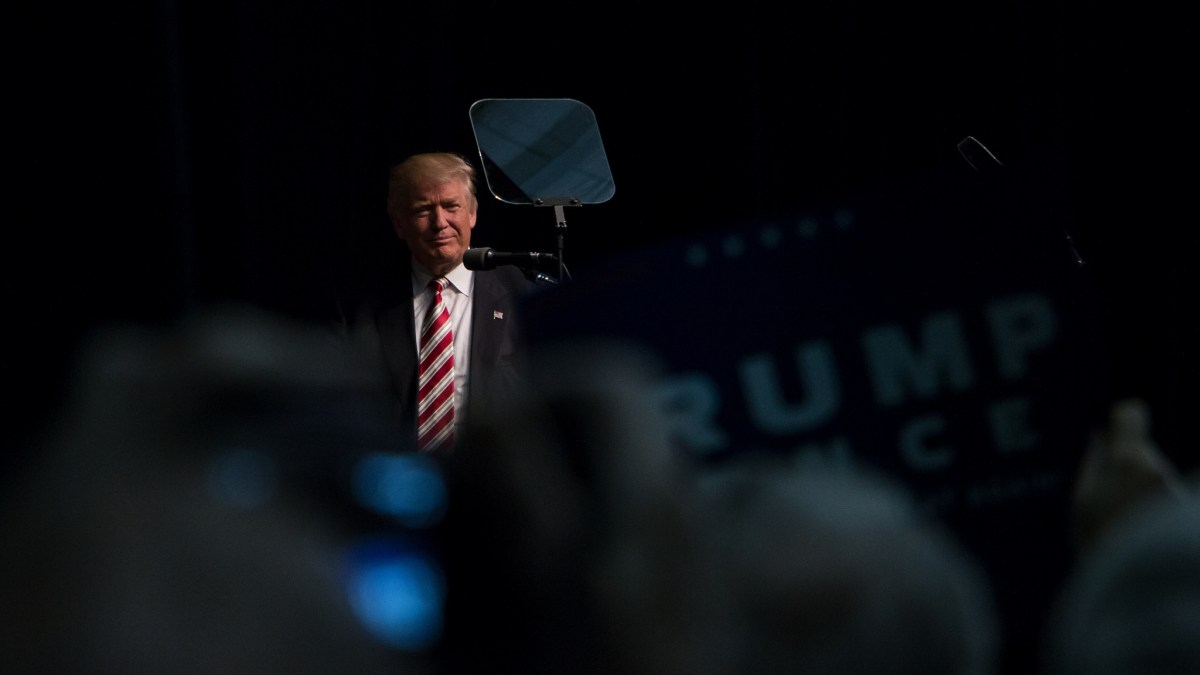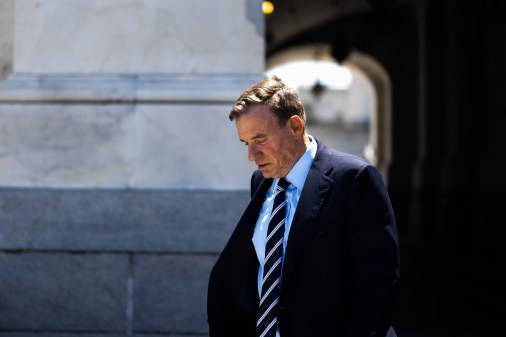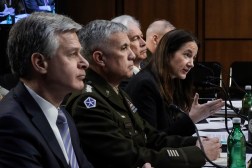Former intel officials: Trump’s win is already hurting recruitment efforts

President-elect Donald Trump’s rise to the White House may have a detrimental effect on the U.S. intelligence community’s ability to both recruit new talent and retain career professionals, former intelligence officials said Wednesday during a panel discussion at the CATO Institute.
The concern is that Trump’s disparaging comments about U.S. intelligence agencies — for example, his characterization of the FBI and CIA as politically motivated institutions — is already beginning to have an impact on whether young recruits will choose public service over jobs in Silicon Valley or Wall Street, described Matthew Olsen, former director of the National Counterterrorism Center.
“When the mantra is ‘Drain the Swamp’ and you’re coming out of graduate school … my gut, if I were advising one of these people, if they’re trying to decide between the national security community and one of those other jobs … I would be hard pressed to advise them to join [the intelligence community],” said Olsen. “Across the board, and I don’t want to be hyperbolic, but this is a crisis for our country.”
“My friends who are working at a higher level, there is a different set of questions. It is even more starkly put for somebody who is going to be in an actual position to implement the policies of registering muslims, or killing terrorist’s families, or bringing back torture. That I think requires a degree of sort of moral searching about whether you’d be willing to pursue those policies,” Olsen said.
Trump’s nascent relationship with the U.S.’ intelligence community has been marred by an underlying reluctance to trust information mined by the CIA, FBI, Department of Homeland Security and Office of the Director of National Intelligence.
“Almost everyday [since Trump won the election] has brought a new challenge for these people. And so I think there’s a lot of people [in the intelligence community] who are facing an incredibly difficult situation and a difficult decision on whether they should stay and serve — both at the political level and also for a career,” said Susan Hennessey, a Brookings fellow and former NSA attorney.
“I don’t think we should underestimate how consequential that is to our national security — not just for these four years or eight years but for 30 years,” Hennessey said.
For months, Trump has specifically called into question the accuracy of intelligence reports that lay blame on Russian hackers for breaking into the Democratic National Committee. While on the campaign trail, Trump broadly proposed the creation of a mass surveillance programs that would target muslim communities and immigrants. Reports suggest that Vice President-elect Mike Pence is attending more intelligence briefing than the President-elect.
“We have groups of people who are graduating from law schools, and graduate schools, schools of foreign service, that are not going to apply for jobs in the intelligence community [because of Trump’s proposed policies],” Hennessey explained. “This message coming from the literal President-elect of the U.S. saying ‘what you do doesn’t matter, I don’t believe it, I question your motives,’ … career professionals are going to think ‘what am I doing here, why am I doing this.”
“We could miss out on a generation of talent and the consequences of that over time really could be almost immeasurable,” Hennessy warned.
Carrie Cordero, a former Counsel to the Assistant Attorney General for National Security at the Department of Justice, shared a more optimistic analysis concerning the intelligence community’s ability to retain talent during a Trump administration.
“I understand there is concerns, especially for people who are considering joining the workforce, but I would say having spent a lot of time in the national security community that this is not a community of snowflakes,” said Cordero.
She added, “These are people who can take a little bit of heat and so I would say I am not quite as concerned that people are going to flee the workforce — certainly if they’ve been there for a while. They’ve been through a lot of ups and downs, particularly in the last 15 years, they’ve felt political pressure, and so they’ve seen leaders come and go. And there’s a good chunk of the workforce that know ‘this too will pass.”






